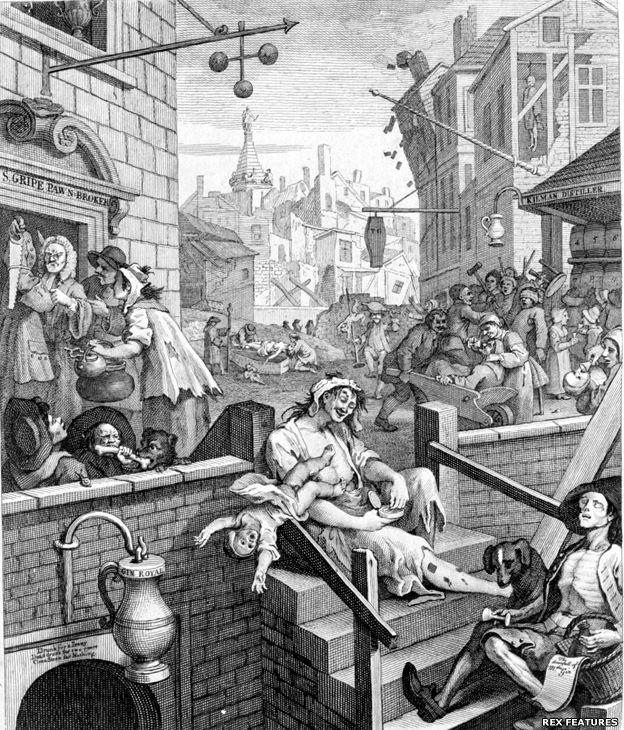The programme featured real-life hoodies, binge-drinkers and chavs delivering the authentic words of 11th century binge-drinkers, Edwardian yobs, Elizabethan xenophobes and 17th-century hooligans to illustrate the fact, contrary to contemporary political and tabloid views on our 21st century society, that the English have been violent, binge-drinking hooligans for more than a thousand years.

Director Joe Bullman reveals the English in all their beer-soaked glory and argues that our lack of respect, lust for violence and love of drink have fuelled our democratic spirit and made us what we are today.
"As I delved into the archives I identified what I came to think of as England's oldest tradition of all – the tendency for people of a certain age to complain that the young people are out of control and that the country has gone to the dogs. Whenever I came across a sentiment like this, I would try to go back the 40 or 50 years or so, to the time when the chronicler of our national malaise had been young. But when I got back there, I found that people were saying exactly the same thing: English manners had disintegrated. The country had gone to the dogs... It's a complaint as old as England itself.England's Seven Sins on IMDB
"In 1860 the English press was in the grip of one of its periodic moral panics, brought on by a wave of juvenile delinquency. Gangs of youths, dressed in intimidating street-uniforms, were waging territorial street-battles and threatening respectable people. People were living in fear, and the streets weren't safe to walk on.
"The word "hooligan" was believed to have first emerged on the streets a couple of decades later and to have found its way into the newspapers in the late 1890s...
"But in an obscure manuscript, I found a much earlier appearance – as a resident of 1650's Turnmill Street (which is still there, on the edge of the City) complained of "gangs of hooligans who demand money with menaces from the poor washerwomen who wassh their clothes and do other thynges for theyre owne needs." (London: The Synfulle City – E.J. Burford, Robert Hale, 1990).
"As far back as the early 1600s, the streets of London were terrorised by a succession of organised gangs – with names like The Dead Boys, the Roaring Boys, The Bravadoes and the Mohocks. They amused themselves by breaking windows, demolishing taverns, assaulting Night Watchmen, rolling old ladies in barrels and slitting the noses of their victims with swords...
"And so it goes. Back through time. An endless succession of English ignorance and thuggery. The idea behind this film is not to imply that anti-social behaviour is not a problem – it is. It's turned our towns and cities into the vilest, ugliest, most barbaric places in the developed world.
"No, the real point is to put the current debate about anti-social behaviour into its historical context. Once we and Tony Blair realise that there never was a golden age of English decency, civility and manners, we can begin to have an intelligent debate about what to do".
No comments:
Post a Comment
Please leave a message - I value your comments!
[NB Bear with me if there is a delay - thanks to spammers I might need to approve comments]